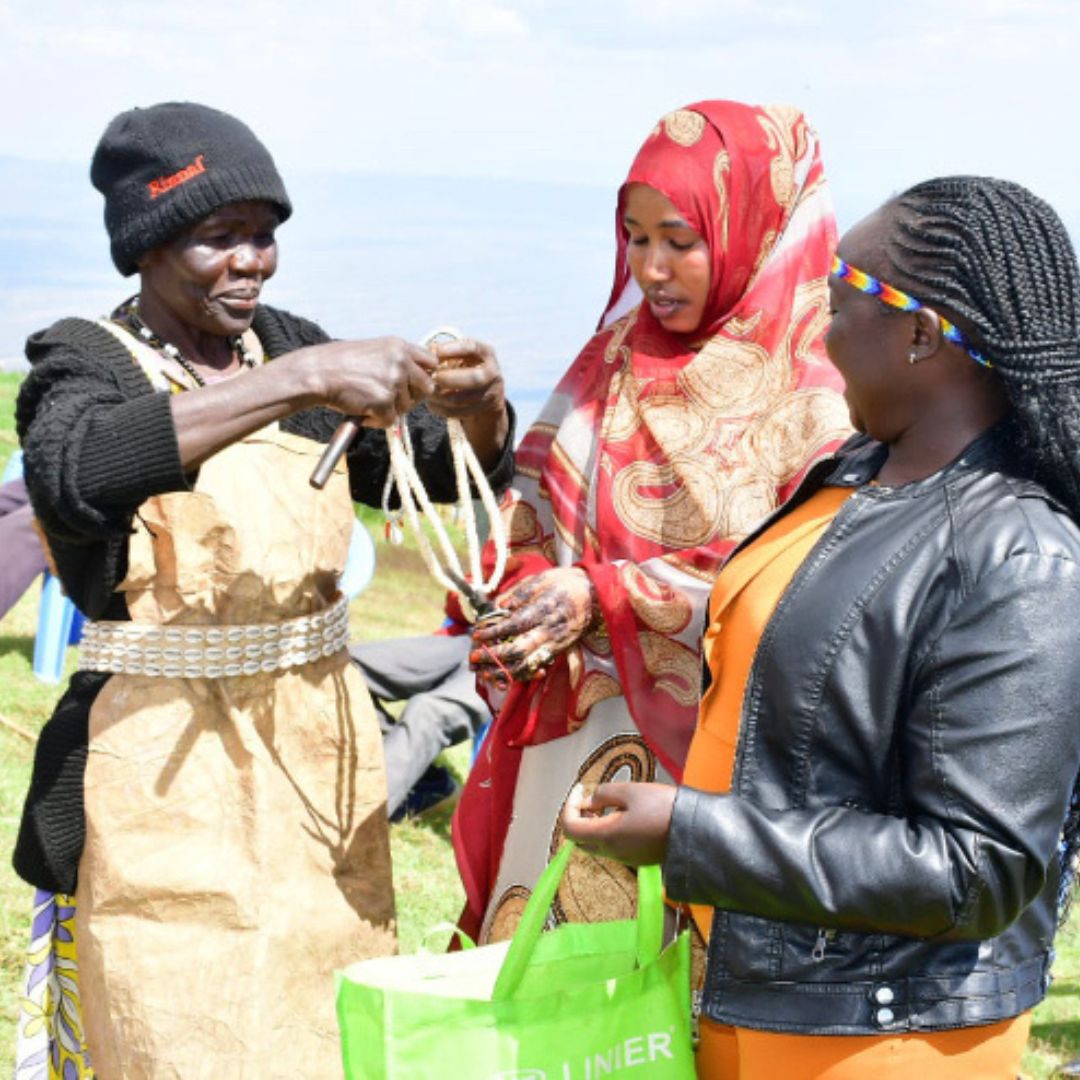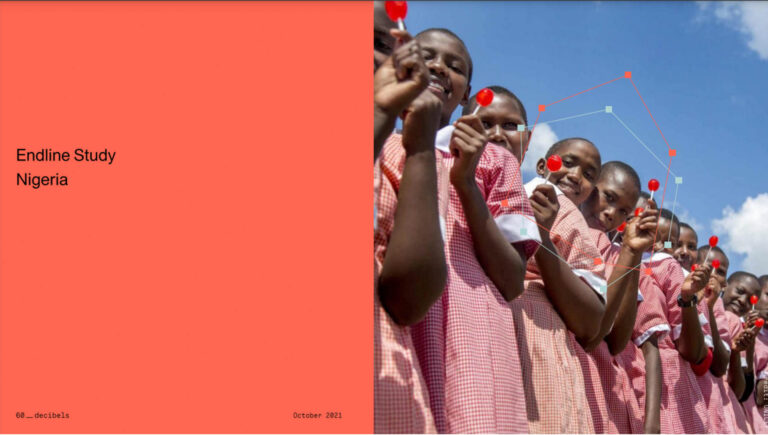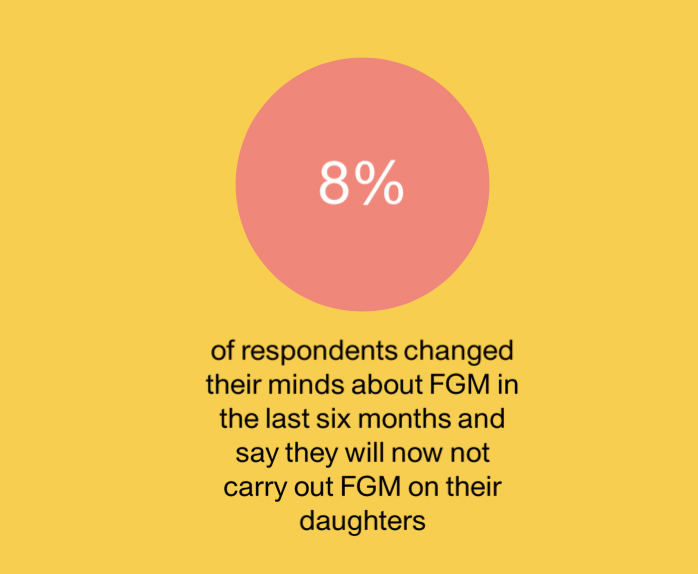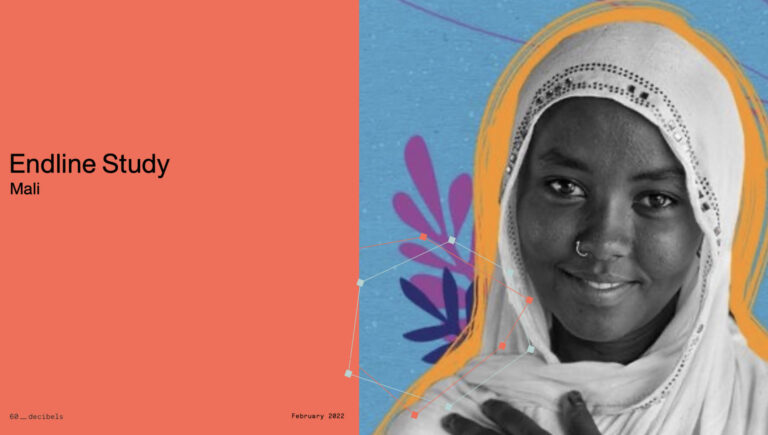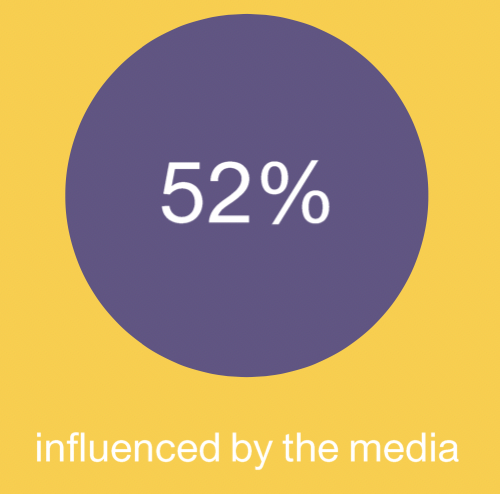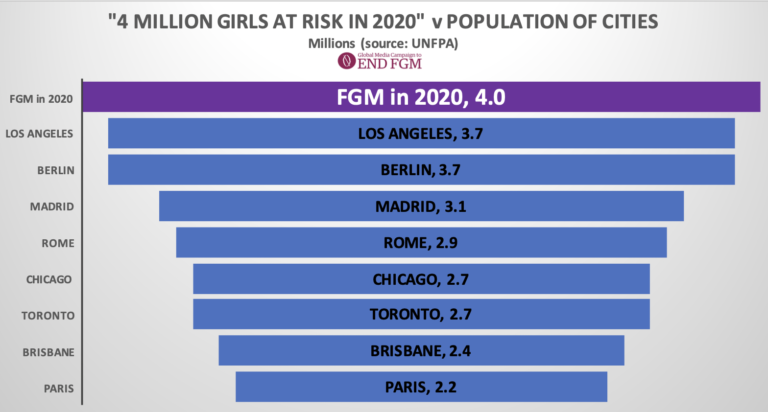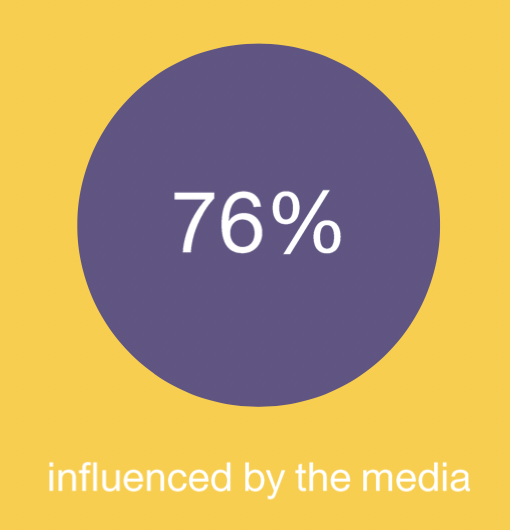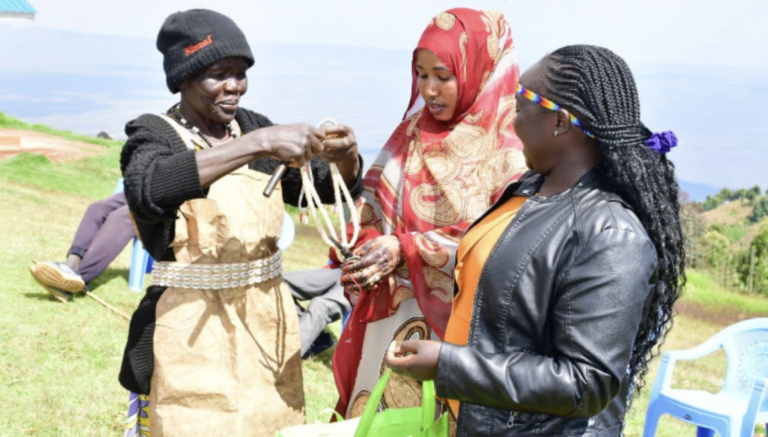97% have “changed their minds” about FGM – following our 3-year Activist-led media campaign
The Global Media Campaign has just completed the 5th survey, which measures the continuous impact of our 3-year media-led campaign to End FGM in Tana River, Kenya.
The 5th study was carried out in January 2021, by Sadia Isaak and her team, to further validate the dramatically improving metrics we had obtained in our 4th longitudinal study, completed in October 2020.
Our studies were conducted in collaboration with the Institute of Anthropology, Gender and African Studies, the University of Nairobi and with the guidance of lean data experts 60Decibels. With additional input from Dr Mary Myers of BBC Media Action and Dr Martin Scott from the University of East Anglia.
The in-country team leading this effort is managed by Sadia Isaak in Nairobi, qualitative and quantitative research specialist, and Jeremiah Kutanya based in Kajiado who, with Sadia, provided coordination and data collection support. Their work was overseen by Professor Charles Olungah, of the University of Nairobi, Institute of Anthropology, Gender and African Studies. For the latest study Professor Charles Olungah travelled to the Tana River region to validate the data collection process.
January 2021 findings:
1. Those saying Type 3 FGM “is necessary” has fallen dramatically, to 5% in January 2021, from a high of 89% in February 2019
2. The number who were “changing their minds” about FGM had increased from 60% to 97% in January 2021
3. The numbers understanding the medical dangers of Type 3 FGM increased from 65% to 91% in January 2021
4. 80% of respondents in January 2021 said that they had heard the FGM campaigns and related activities, an increase from 16% pre-intervention
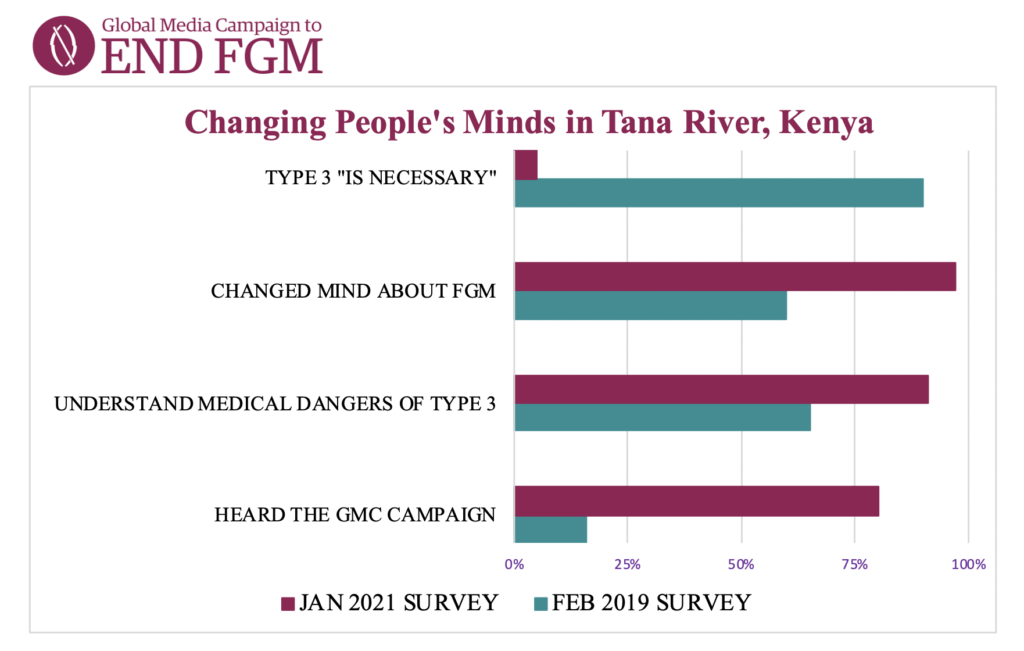
We believe these are impressive metrics, for a relatively low cost grassroots Activist-led campaign. We can confirm, our 500+ ‘catalysts for change’ are changing both minds and actions, in their communities.
Professor Charles Olungah, of the University of Nairobi, Institute of Anthropology, Gender and African Studies and Dr Jessica Noske-Turner, of Loughborough University, Programme Director MA Global Communication and Social Change reviewed our findings to ensure integrity of the process and results.
“I have reviewed the Tana River Jan 2021 evaluation methodology and data and find it to be appropriately rigorous. Specifically the approach adopted, the sampling, and the mixed-methods design establishes rigour and coherence”
Dr Jessica Noske-Turner, Loughborough University
“There has been robust media campaign spearheaded by Dayaa in collaboration with Global Media Campaign (GMC) that has not only created awareness, but also brought powerful voices to talk about FGM and this has led to a reduction in the type 3 FGM(being considered “necessary”) that has traditionally wreaked havoc among many girls”
Professor Charles Olungah, University of Nairobi,
Plus Sean O Callaghan, Research Director, 28 Too Many has added;
“GMC’s Impact on FGM has been astonishing”
Sean O Callaghan, 28 Too Many
Background:
GMC’s longitudinal study was conducted in Hola, Tana River County, Kenya which has a population of 6900. The data collection was carried out mainly in 3 villages in Hola namely Bula Secondary, Bula Kabah and Bula Kasarani. Most of its inhabitants are pastoralists.
The site was chosen for this study because:
- FGM prevalence among the Somali in the area of Tana River is over 90% and is often justified as a religious practice.
- The town’s isolation makes it a suitable location for this study, as there are few external factors influencing the impact of GMC’s activities.
- The baseline suggests it is the women who are most often in the village while men are travelling with the herd. The women are therefore the most able to listen consistently to radio messaging, and also the people who travel regularly to the market or meet together for discussions.
- The most influential figures in the community were said by 92% of respondents to be elders/ traditional leaders; the most influential voices in the media are religious leaders.
The longitudinal study adopted a mixed method approach to collect data i.e. both quantitative and qualitative data collection techniques. In each study, where n=100, surveys were administered to both males and females aged 18 and above at house level and marketplace.
Conclusion:
Although, FGM/C is a deeply rooted cultural practice, the length of time necessary to end it may have been over stated.
It all depends on the strategy employed and the funding available, to deliver an effective strategy.
It is clear, from the results of our post-intervention studies, that the Tana River community has dramatically changed its perception regarding FGM, following a sustained 3-year media-led campaign.
The success of the GMC strategy is due to the recognition that the best people to change the minds and actions of communities are their own people.
Our 500+Activists, many of whom are ‘survivors’ of FGM, includes Sadia Hussein and her Dayaa Women’s Group. They represent a highly effective grass roots network spreading the anti-FGM message throughout their communities.
This insight, passion and drive of our Activists makes them the best possible catalyst for change – when it comes to overcoming the deeply rooted practice of FGM.
If you wish to see the original Inception Tana River report, please click here
Special Thanks goes out to Sadia Hussein and the Dayaa Women’s Group for their insight, passion and drive, in the Tana River region.


